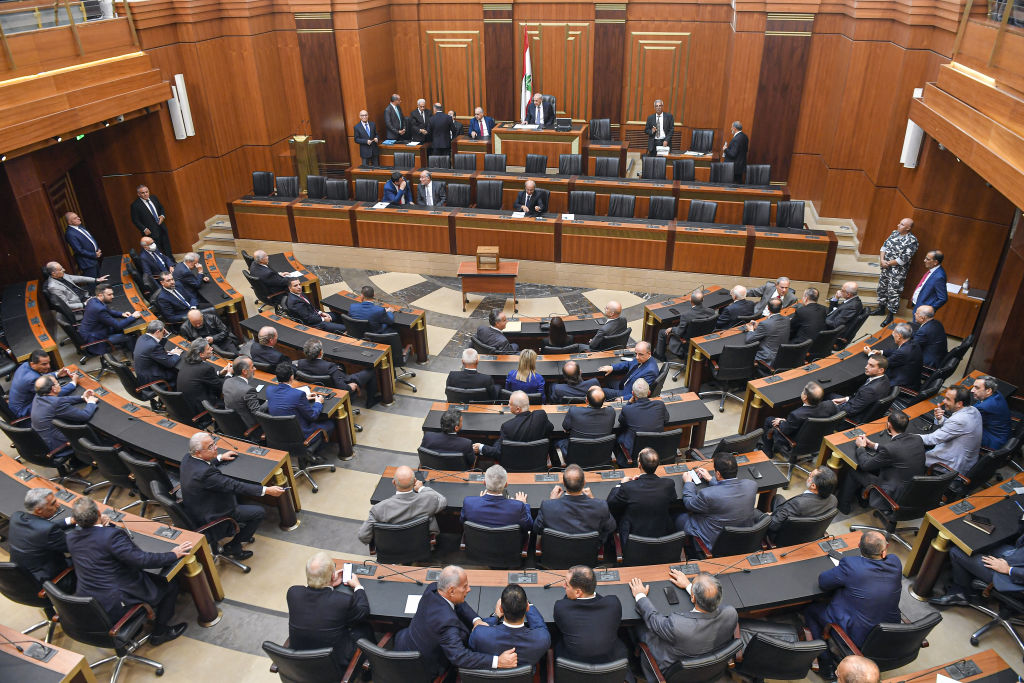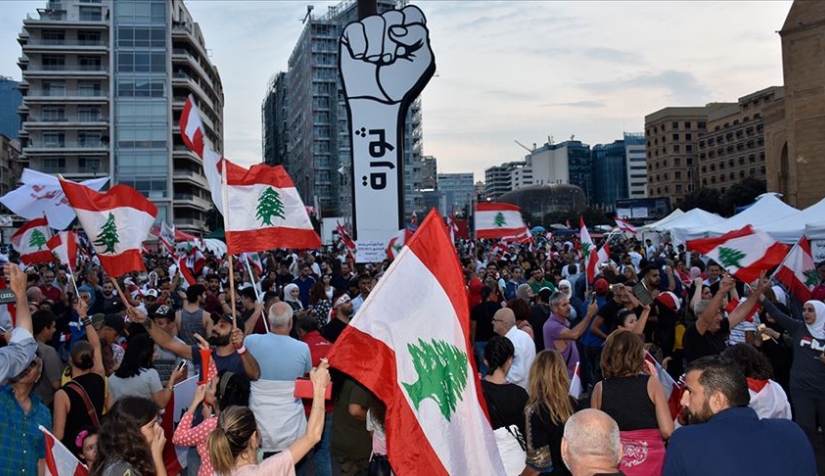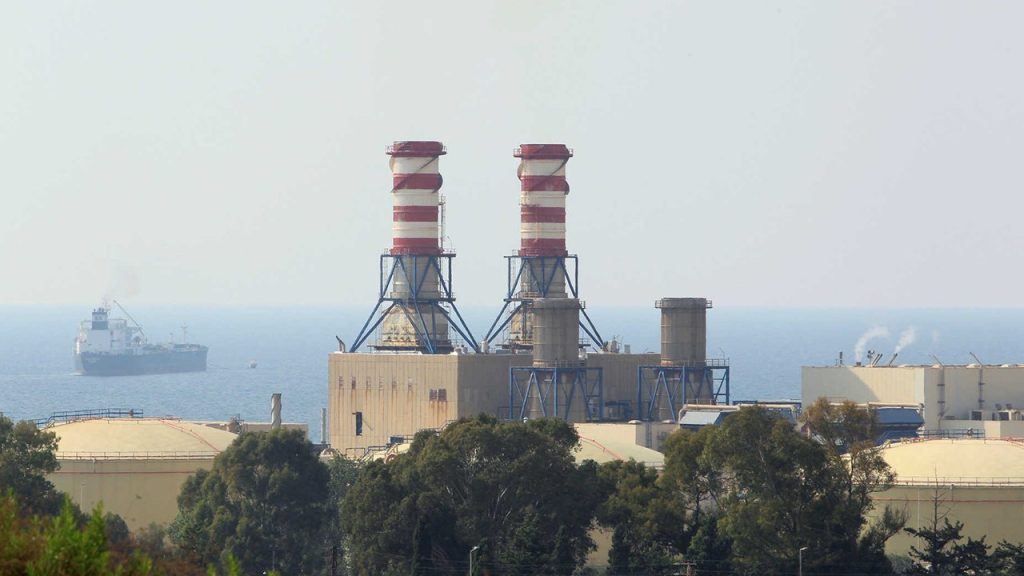Interview with Matthieu Karam
Mr. Matthieu Karam is a French Lebanese web journalist who holds a BA in Political Sciences from Université Saint-Joseph in Beirut and a MA in International Security from Sciences Po Paris. In 2014, he moved back to Beirut and started working as a journalist for L’Orient-Le Jour. Today, he is the co-manager of the Live news department for L’Orient-Le Jour and L’Orient-Today.

In May 2022, the Lebanese people elected the new Members of Parliament and the election results sparked overall some positive reactions. The loss of some seats among the Hezbollah-Amal satellite parties and the emergence of a third bloc made by independent candidates were viewed as a consequence of the economic crisis and the following thawra (revolution) in 2019. However, many analysts focused on the fragmentation inside the Parliament and among the blocs that opposed the Hezbollah-Amal front, considering it a possible threat to the political and socioeconomic stability of the country. Is there a concrete event or political decision that clearly shows this division inside the Parliament?
M. Karam: The best example that illustrates the Parliament’s fragmentation has been the session for the election of the new president. Today (10th November) we held the fifth session to elect the new president, but there is still no agreement. Usually, in Lebanon political groups meet each other, agree on an action, go to Parliament, and elect the new president. Nowadays, the Parliament is too fragmented, as shown by the Hezbollah front and its allies, the traditional opposition given by the Lebanese Forces (Lebanese Christian-based political party led by Samir Geagea) and their other allies and the non-traditional opposition which constituted by the 13 MPs (reformist members of Parliament elected in May 2022) and the independents. Also, the 13 MPs no longer constitute a united bloc with one another, because two deputies [Michel Douaihy and Waddah Sadek] left this bloc and they are now totally independent. None of the blocs can enjoy a clear majority to pass any law or to endorse the president. This political deadlock is the major issue: political groups need an agreement, which is impossible to reach for the time being.
So, the non-election of the new president is a consequence of this deep fragmentation among political groups. However, can this “non-event” be seen also as a Hezbollah-Amal strategy to elect a president who belongs to their front? We know that Michel Aoun, the former president elected in 2016, is a member of the Free Patriotic Movement, allied to Hezbollah and Amal.
M. Karam: Yes, Hezbollah and its allies stated that they will not accept a president who is against them, knowing that they can block the election for now if they will not get their candidate elected. This is the reason why they voted blank in each of these sessions. Also, things are made even more complicated by the fact that Hezbollah does not have just one single candidate: it’s allies proposed Sleiman Frangieh and Gebran Bassil, Two Christian candidates backed by the Shi’a movment. Both have presidential ambitions and Hezbollah does not want to choose between them, even if the party is closer to Frangieh. Thus, each candidate is waiting for the others to break down from the presidential race. Some players are probably waiting for more favourable regional outcomes, like the likelihood of a deal with Iran or the chance that the US lifts its sanctions imposed upon Bassil for corruption. On the contrary, Frangieh is not sanctioned by the US and enjoys good relations with Saudi Arabia. Still, both candidates seem to lack popular support and therefore this deadlock might take weeks or months.
Is there actually a candidate who has a chance to be nominated by the bloc of opposition to Hezbollah-Amal as the new president of Lebanon?
M. Karam: Right now, the traditional opposition is voting in favour of Michel Moawad, a MP representing the Zgharta District, a Christian figure close to the US and against Hezbollah. He received 44 votes on the 10th of November session but requires 65 votes to win the presidency at the second round of the election or 86 to reach the quorum. Currently, he is far from the prospect of getting these votes. Another candidate might be the head of the army, Gen. Joseph Aoun, since traditionally in Lebanon army chiefs have become presidents. For example, Michel Aoun was head of the army in the 1980s, as were Michel Sleiman and Émile Lahoud. In particular, Joseph Aoun enjoys good relations with Washington and Paris and according to some diplomatic sources he has chances of being elected, but this is still to see.
So, currently the presidential powers shifted to the Council of Ministers?
M. Karam: Yes, even if it is particularly problematic in Lebanon. This is the first time that the presidential powers needed to shift to a caretaker government, which has not been active since the legislative elections held in May 2022. Najib Mikati, the Lebanese PM, said that the Constitution allows him and his government to take on presidential powers during the political vacuum. However, former president Aoun and his allies said that this would be illegal since they believe that the Constitution does not state that a president can deliver any of his powers to a caretaker government. In the previous weeks, the Lebanese Parliament expressed its opinion on this matter, stating that the caretaker government can assume presidential prerogatives, but that it should only act as a caretaker government, focusing on ordinary issues.
What are the main risks for the non-election of the new president, taking into consideration the socio-economic crisis which enters its fourth year?
M. Karam: Actually, there are many risks. In the past weeks, the head of the army mentioned the risk of security threats and in the past month the Minister of the Interior announced the dismantling of several terrorist cells. At the moment, the government is not able to work efficiently, and the absence of the president represents a real issue in a country that is already dissolving economically and in which the army and internal security forces are having a hard time to exercise their activity while facing financial difficulties. So, there is always a risk that couples with the issue of poverty, which could reasonably lead to the outbreak of popular protests. As far as I know, two days ago the Lebanese army published videos with soldiers being trained, which was perceived as a threat by people who manifest in the streets. Usually, this happens in Lebanon after political crises, although there is no confirmed information about the occurrence of a popular protest.

The financial crisis started with the currency depreciation in 2019, which led to the outbreak of protests in Lebanon. Then, the situation collapsed with the Covid-19 pandemic and the explosion of the Beirut port in 2020. The inflation rate jumped to 240% in January, the prices of water, electricity and fuels increased significantly, the Lebanese pound lost 95% of its value and 80% of the Lebanese population is now living below the poverty line. In the last months banks experienced many heists after hampering people to withdraw their savings from bank accounts. So, considering this dramatic scenario, what are the economic sectors that need reforms in the short term?
M. Karam: Surely the banking sector. This is something many experts agree on, and this is something the International Monetary Fund is asking for. Lebanon is a country that has many banks, and these banks cannot continue to work like zombies. They don’t provide any service other than allowing consumers to withdraw little amounts of money from time to time, by taking commissions on withdrawals. Also, they don’t offer loans or credits. A thorough reorganization of the banking sector is needed to avoid its complete collapse. For instance, a merge between banks that would reduce their number would be useful. Another issue to work on refers to the Électricité du Liban, that is the public power office: in Lebanon people barely receive two hours per day of public electricity, while the rest of the time a private electricity generator is needed, which implies very expensive bills. The renovation of the country power grid is mandatory because it is costing to the state some several billion dollars a year, despite the country’s potential financial collapse. Likewise, the health sector needs a restoration: for instance, at the moment Lebanon is facing a cholera outbreak, while the Coronavirus pandemic already hit the country hardly. The health sector is not shaped to be resistant to such pressure. The public sector is another big issue: for instance, although many state employees do not show up at work, they still earn the salary. However, the value of the salary is close to zero nowadays because of the depreciation of the national currency. Finally, although the energetic sector (gas and oil) is soon expected to soar after the maritime agreement with Israel, it could take years before showing some positive outcome.
Yes, considering the Lebanese scenario there would also be the need to introduce reforms to hamper corruption at the political level…
M. Karam: Definitely, corruption is a big issue to solve in Lebanon, but the problem is that the political class is mostly corrupted. How can you compel the political class to fight corruption when it is one of the reasons why it is still in power? This is a vicious circle. Obviously not all the politicians are implicated at the same level. One of the main reasons of the existence of corruption is clientelism in the economic, public, energy, and telecommunication sectors.

Stepping back to the energy sector of oil and gas, do you consider the recent maritime agreement with Israel a positive step towards socioeconomic stability?
M. Karam: Lebanon is very weak on the issue of the supply of oil and gas; it is not proven yet if the country enjoys enough gas within its territorial waters. Lebanon still needs to verify whether Qana bears enough gas quantities, or gas reserves at all. This can be proven only by signing contracts with companies and starting the drills, although Lebanon does not possess a financial trust fund to invest in energy-related projects. Also, this specific sector is dangerously subject to the risk of corruption. Furthermore, another issue could stem from the delimitation of maritime borders with Cyprus and Syria. While it might be easier to do so in relation to Cyprus, the negotiations with Syria might be more complex. The Syrian regime is sceptical towards the idea of fixing borders with Lebanon. However, the agreement with Israel will surely help to mitigate the risk of war, since two countries that are tied by an agreement and that share economic interests are unlikely to go at war with one another. So, this is the more tangible and positive result of the maritime accord.
Focusing on gas extraction and production, what do you think about the external powers’ interests in the Lebanon energy sector (France, Italy, and Gulf countries)? Considering the diplomatic tensions of last year, can this agreement improve the relations between Lebanon and Gulf countries?
M. Karam: I know that there used to be a consortium of companies that included Total Energies (France), ENI (Italy) and Novatek (Russia), although the latter withdrew from the deal enabling Lebanon to buy its shares. Now, Qatar is entering in the deal and is willing to invest in the sector. Even if it is not clear how Qatar is going to shape the deal, it surely manifests a public interest in the project. As for the relations with Gulf countries, Qatar follows a specific trajectory, while others pursue their own foreign policy. As of today, also Saudi Arabia and the United Arab Emirates show interest in this still small sector, but Qatar clearly presents a more “aggressive” stance in pursuing its goals. To be sure, this accord brings Lebanon closer to the international scene.
In your opinion, is Hezbollah’s decision to agree on the maritime accord with Israel only due to the necessity of easing the financial crisis or are the popular uprisings in Iran playing a role in it, given the fact that Hezbollah realized it cannot be easily backed by Teheran?
M. Karam: No, I think it does not depend on the protests in Iran. These are very recent and the maritime border negotiations have been ongoing for the past two years. I think that the parties involved in the negotiations auspicated this deal more than ever before. The reasons are different: the former Israeli PM Yair Lapid wished to secure his position in the frame of the elections, while Michel Aoun auspicated to exploit this deal as a victorious tool before the end of his office to improve the poor performances of his political mandate. I believe that currently Hezbollah does not envision a war with Israel since the political situation in Lebanon is highly tense: domestically, the public opinion does not support the idea of a new war. This war would have devastating consequences for Lebanon.
Last but not least, can the election of Benjamin Netanyahu in Israel be considered as a threat for the success of the agreement, leading to the renewal of tensions with Hezbollah?
M. Karam: I think that Netanyahu cannot back down from the agreement because also the US strongly supports it. Referring to the legal framework, I do not know if the new Prime Minister can withdraw from an international agreement, but surely the fact that the elections have been won by a right-winged PM with a far-right coalition in power might complicate the relations with Hezbollah. However, I do not think that Netanyahu is a reckless politician, but rather a cautious man. We still must see how his coalition will treat this deal, but I am confident that there are no concrete risks that Israel may withdraw from it.
Maria Grazia Stefanelli
